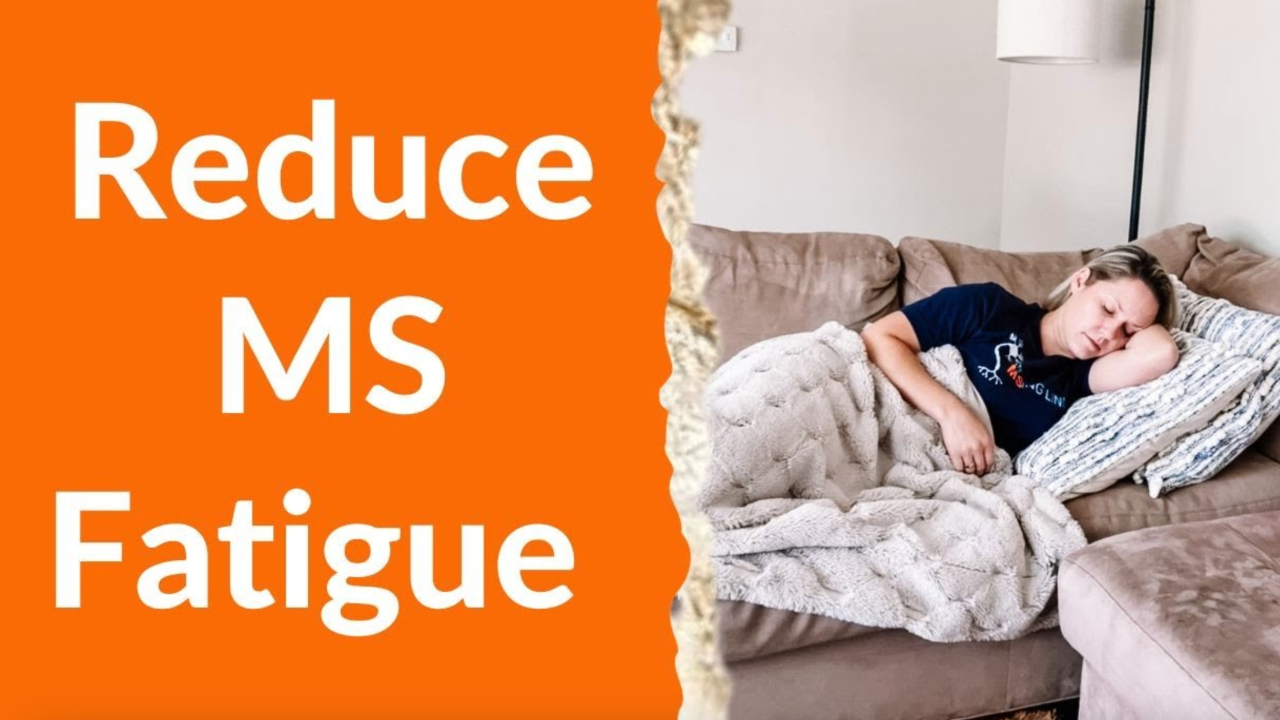
What Is MS Fatigue? | 5 Ideas To Feel Like Yourself
Apr 08, 2024Is fatigue getting the best of you lately? I’m here to help.
Oftentimes, we tend to ignore the toll that fatigue takes on our bodies as society often associates "tired" with "laziness". While I do not advocate for ignoring any signs your body is trying to give you, for those experiencing MS – this fatigue can become even greater.
Today on the blog, I’d like to share my expert physical therapist tips for how to reduce MS fatigue. I want to make it clear this symptom is very real and should not be ignored, but there are strategies we can implement together to improve your energy for the day ahead.
What Is MS Fatigue?
MS fatigue presents in various ways, often leaving individuals feeling depleted, despite having adequate rest. It's not just feeling tired after a long day; it's an overwhelming sense of exhaustion that can strike at any moment, regardless of how much sleep you've had. Tasks that were once manageable may suddenly feel exhausting, and even the simplest activities feel difficult to get up and achieve.
Two Types Of MS Fatigue
Yes, you read that right. Feeling fatigued is a symptom of MS, but there are two symptoms someone may experience. Here are the two classifications of MS fatigue:
- Secondary Fatigue: There is a reason for your fatigue. Exercise, a late night, or tossing and turning can be pointed to as an explanation. We all feel this from time to time, whether you’re currently experiencing MS or not. Although this can become exasperated due to MS, this is not something that could immediately cause alarm.
- Primary Fatigue (MS-Specific Fatigue): This type of fatigue occurs for no reason. People experiencing MS-specific fatigue have described this feeling to me as so tired, they cannot even open their eyes or move at all. Unfortunately, there is no reason for the fatigue to occur, but there are ways to help mitigate this feeling.
Five Ideas To Help MS Fatigue
Once you narrow down the type of MS fatigue you are experiencing, it’s much easier to tackle the symptoms you’re currently facing. Above all, remind yourself to be both kind to your body and mind as you work through your MS fatigue. This is one of the most common symptoms of those experiencing MS and one I see in almost every client I work with.
To learn more about MS Fatigue, my Youtube channel, Dr. Gretchen Hawley, will walk you through both exercises and additional ideas to tackle your symptoms. You are not alone and I am here to help.
1. Rest, Guilt-Free!
So often when we rest and give our body what it needs, we come up with a million different reasons to feel guilty about it. Then, even if we are resting, there is no actual rest being done and our bodies will not respond correctly. Remind yourself that it is healthy to relax and you deserve it.
2. Let All Movement Matter
In my opinion, a story is best for this explanation. One of my MSing Link clients told me how she was frustrated for not doing her exercises for a week, due to her daughter being sick. Although it wasn’t her traditional routine, she went up and down the stairs, while standing to cook three meals for her a day. This is movement too! Don’t count your body out, it’s working hard to take you through each day.
3. Exercise
Although this sounds counter-intuitive and could increase fatigue more, it can actually be the exact opposite. Research shows proper MS exercises can increase energy and improve mobility, but only if it’s done properly. Let me be clear, you do not have to perform high-intensity workouts to achieve the benefits. Light to moderate exercise will help MS fatigue the best, although I tend to focus on the benefits of light exercise the most.
4. Understand Sleep Hygiene
When you look at your daily night sleep, how much of it looks like the “doctor’s orders”? What this means is prioritizing your sleep quality by creating a conducive environment for rest. This includes maintaining a consistent sleep schedule, creating a comfortable sleep environment, and avoiding stimulants like caffeine close to bedtime.
5. Prioritize Mental Wellness
Although MS is a physical condition within the body, the emotional turmoil it takes cannot be stated enough. Prioritize your mental health by seeking support from loved ones, engaging in activities that bring you joy, and practicing self-compassion. Managing stress and maintaining a positive mindset can significantly impact your overall well-being and energy levels.
Further MS Fatigue Treatment Options To Consider
If you've tried my go-to five ways to combat MS fatigue, but just aren't seeing the differences you need to take on the day, there are a few strategies you can consider. In my online course, The Msing Link Game Changers, I break down the nuances to the following fatigue treatment options: medication, psychosocial / behavioral, and exercise. So, which option is best for you?
Medication and psychosocial / behavioral treatments are typically done in coordination with your neurologist and other MS specialist doctors currently on your team. Since MS fatigue is such a common symptom, they will be able to guide you with a lot of confidence.
As for exercise, I know you already read it in my 5 ideas, but I want to discuss how a routine tailored specifically for fatigue (if low-impact workouts are not doing enough) can really change your daily life. If you work with me and utilize this treatment option in the right way, your body will create energy, instead of feeling like it's using it all up.
Ready To Conquer Your MS Symptoms?

Despite its invisible nature, MS fatigue is very real and can significantly impact daily life. It's essential to recognize and acknowledge its presence, as doing so is the first step towards effectively managing it. After hearing so many questions from my clients regarding MS fatigue, I created a section within my book, The MSing Link, addressing workouts, nutrition, and overall wellness to help guide those experiencing MS into a routine specifically tailored to them.
This is an excellent resource and the first step to getting yourself back in the driver’s seat of your symptoms. After all, you are in control and together, we can get you feeling more like yourself.
